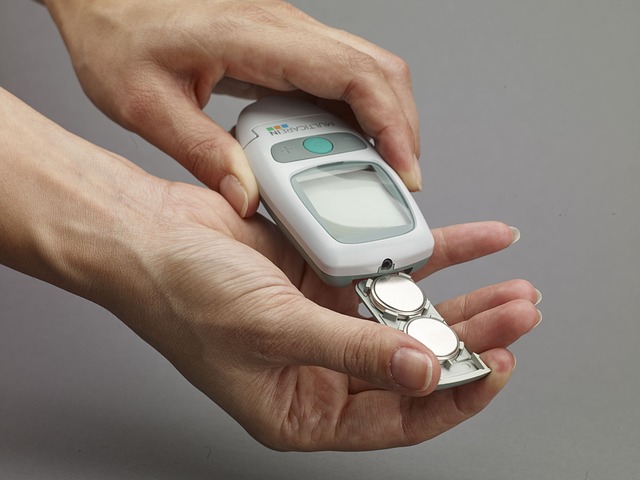The UK Testosterone Blood Test is a critical diagnostic tool for identifying hormonal imbalances linked to reproductive issues, including infertility, irregular periods, and sexual dysfunctions in both men and women. By measuring testosterone, estradiol, and progesterone levels, healthcare providers can tailor treatments for conditions like hypogonadism, polycystic ovary syndrome (PCOS), and age-related hormone decline, ultimately promoting optimal reproductive health and symptom management. Regular follow-up tests are essential to monitor progress and adjust treatment plans.
In the UK, hormone analysis plays a pivotal role in diagnosing and treating reproductive issues. This comprehensive guide delves into the world of hormone testing, specifically focusing on the UK Testosterone Blood Test. We explore its importance for evaluating reproductive health, from understanding the test itself to interpreting results and determining next steps. Whether you’re seeking clarity or considering this test, this article provides invaluable insights into navigating UK Testosterone Blood Test outcomes.
- Understanding Hormone Analysis for Reproductive Health in the UK
- What is a Testosterone Blood Test and Why is it Important?
- Navigating Results and Next Steps After a UK Testosterone Blood Test
Understanding Hormone Analysis for Reproductive Health in the UK
Hormone analysis is a crucial tool in assessing and diagnosing reproductive issues in the UK. It involves examining various hormones, such as testosterone, estradiol, and progesterone, to gain insights into an individual’s hormonal balance. In the context of reproductive health, this analysis can help identify underlying causes of infertility, irregular periods, or other sexual dysfunctions.
In the UK, a UK Testosterone Blood Test is one example of hormone analysis that has gained prominence. This test measures the level of testosterone in the blood, which plays a vital role in both male and female reproductive systems. Imbalances in testosterone can lead to a range of symptoms, including decreased fertility, libido changes, and muscle mass loss. By understanding these hormonal dynamics, healthcare professionals can offer personalised treatments and interventions to address specific reproductive challenges.
What is a Testosterone Blood Test and Why is it Important?
A Testosterone Blood Test, also known as a serum testosterone test in the UK, is a diagnostic procedure that measures the level of testosterone in your blood. Testosterone is a hormone primarily associated with male sexual development and function, but it plays a crucial role in both males and females. In women, it contributes to bone health, muscle mass, energy levels, and libido.
This test is essential for diagnosing various reproductive issues. For men, low testosterone (hypogonadism) can lead to decreased sex drive, erectile dysfunction, fatigue, and muscle loss. In women, elevated or insufficient testosterone levels may indicate polycystic ovary syndrome (PCOS), which can cause irregular periods, excessive hair growth, and fertility problems. The UK Testosterone Blood Test provides valuable insights for healthcare professionals to tailor treatments, ensuring optimal reproductive health and addressing related symptoms effectively.
Navigating Results and Next Steps After a UK Testosterone Blood Test
Navigating the results of a UK Testosterone Blood Test can seem daunting, but understanding the outcomes is crucial for the next steps in addressing potential reproductive issues. The test provides valuable data on testosterone levels, which plays a significant role in fertility and overall health. If the result indicates low testosterone (low-T), it may signal various underlying conditions such as age-related decline, medical conditions like hypogonadism, or lifestyle factors.
The next course of action depends on the specific test results. Your healthcare provider might suggest further tests to investigate the cause. Treatment options could include lifestyle changes, medication, or other interventions tailored to address the identified issue. Regular follow-up tests are essential to monitor progress and adjust treatment plans accordingly.
Hormone analysis, particularly the UK testosterone blood test, plays a pivotal role in diagnosing and managing reproductive issues. By understanding the results of such tests, individuals can take informed steps towards optimal reproductive health. Whether it’s exploring treatment options or making lifestyle adjustments, navigating the outcomes of a UK testosterone blood test is the first step towards potentially life-changing solutions for those seeking to enhance their fertility and overall well-being.
